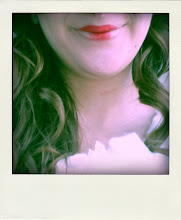An Actor Prepares - Reflection on First Half (Midterm)
>> 26 March, 2010
What are some of the very basic principles of acting, according to Constantin Stanislavski? How can you utilize them in your own craft?
After reading the first half of An Actor Prepares by Constantin Stanislavski, my eyes have really been opened to all the different things you must be aware of as an actor. The first half of the book doesn't focus on "acting" techniques, but instead focuses on the beginnings of acting, such as action and physicality, imagination, and concentration. These are introduced as the most basic principles, and seem to be the first building blocks of becoming a successful actor.
"...The very best that can happen is to have the actor completely carried away by the play. Then regardless of his own will he lives the part, not noticing how he feels, not thinking about what he does, and it all moves of his own accord, subconsciously and intuitively." (13) Stanislavski says this in one of the very beginning chapters, making it apparent to the reader that the goal he is trying to achieve with them is to completely make them immersed in the moment and the play. In addition, Stanislavski makes it obvious to the reader that they must also be truthful in their acting. He states "A role which is built of truth will grow, whereas one built on stereotype will shrivel." (28) After introducing the reader to the basic rules of acting, he then goes on to explain in more detail how to go about immersing yourself within the role.
One of the first principles is action. As an actor, you must be completely aware of how you move onstage, or how you don't move. "Whatever happens on the stage must be for a purpose, a specific purpose, not merely the general purpose of being in sight of the audience." (33) Stanislavski writes, explaining how "all action in the theatre must have an inner justification, be logical, coherent, and real." (43) Nothing an actor does should merely be for the audience's enjoyment, or to make them more viewable; it must be true to the character. This is the first time Stanislavski introduces us to the concept of "if"; "...it reassures him through honesty, and encourages him to have confidence in a supposed situation." (44) he writes, explaining how the concept of "if" is the driving force for the actor to make their character's situation real.
Another basic principle is imagination. In this chapter, Stanislavski goes on to explain the concept of "if" further. He states that you must imagine that "if" you were in a certain situation, how would you react? "If" you were in a certain area, what would you see? What would you smell? Stanislavski writes that you must ask yourself these things for every role, and dig within your imagination and emotions to truly make a role realistic. "Every moment you make on the stage, every word you speak, is the result of the right life of your imagination." he writes, thus making the actor's own imagination a staple of acting.
Two other basic principles of acting are the concentration of attention and relaxation of muscles. In order to make a scene successful and convincing, you must be fully immersed within the scene both mentally and physically. You can't worry about what the audience will think or what they are doing. "In order to get away from the auditorium," Stanislavski writes, "you must be interested in something on the stage." (70) Stanislavski explains the concept of a "circle of attention", which is centered on an object or person on the stage. It is literally a sphere surrounding the object, just as a sphere of light encircles a lamp in a dark room. You must mentally create the "circle of attention" for yourself, and decide how large or small it should be. In addition to creating a mental sphere for yourself, you must have your body within the moment as well. You must play everything as if it's the norm for the character, and you must learn to relax and not look nervous. He states "There should never be any posing on the stage that has no basis." (99) Stanislavski also explains an exercise in which you lie down on the ground or in a bed, and you go from head to toe recognizing which parts of your body feel tense, and then focus on relaxing them.
I've found this book to be extremely enlightening so far. I intend to approach my roles with a whole process now; not only focusing on the role, but the world the character lives in, what they have gone through, how they think and carry themselves. In addition, I will most likely use the "circle of attention" concept in order to remain locked within the scene. Oftentimes I have found myself to sneak peeks into the audience and see how they react to certain parts of a scene, but now using the "circle of attention" I will stop that habit. In addition, I plan on using the exercise in which you lie down and "check-in" on where my body is tense. I tend to get extremely tense and nervous before shows, and I will try to curb that with that exercise (or at least a derivation of that exercise). I can't wait to continue reading the book and see what else I will learn.


0 comments:
Post a Comment